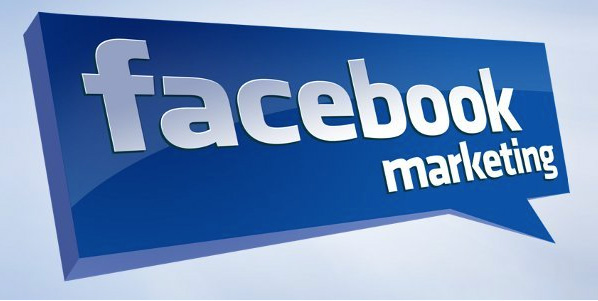10 Essential Rules For Effective Facebook Marketing In 2015

Facebook has changed over the years. It grew bigger— and it grew stricter in its anti-spam policy to protect its users from businesses who tried to ‘overdo it’.
No matter the hassle and the headache such changes brought along, Facebook is still one of the most frequented social platforms, making for 76.22% of the market share according to StatCounter, and it can generate traffic in the thousands for website owners who organically develop a loyal following.
How to do Facebook marketing in 2015?
That’s precisely what this post is here for. Read on.
1. The evergreen strategy
It’s one, and it works well with any social medium, but it works even better with Facebook, where it’s harder to connect and market to people who are not among your Friends.
Greg DiVilbiss from High Performance Living tells you about this evergreen strategy he uses all the time:
My number one strategy for social media is finding content that impacts the reader, makes them feel, or to cause an action. Have the content be engaging with the goal in mind to create an interaction. Engagement is key, a like is great a comment is better. Always focus on what value you can bring.
But what should you do, in practice? Akathma Devi has the answer:
1. Fill in the bio completely.
2. Use the right hashtags.
3. Maintain relvancy in content, simple vocabulary and right grammar.
4. Be communicative [rather] than broadcasting or salesy
5. Visual content impacts more.
Akathma’s advice also works with any social medium, not just Facebook, but because of Facebook’s content fruition settings, it’s a winning strategy, that you can complement with Tip #8.
2. It can work out even if you’re not on 24/7
You don’t have to be around Facebook all day, all week.
As Patricia Weber tells us:
On Facebook it’s checking into my stream about 3 times a week. It’s the noisest platform so I’m not there that often. But when I am, I like, I comment, I share, I sing Happy Birthday when I see the notice.
Respond to your notices as soon as you can, but don’t stress to be on all the time. Your fans, friends and group members will still get a notice when you answer to their feedback.
3. Use it as a gold mine, not a dumping ground
That’s what David Trounce’s of Mallee Blue Media warning to social media marketers–
Most people in marketing use their Social Media as a dumping ground for links back to their articles, offers, etc, and hope someone will take up an interest. Truth is, most people are only interested in their own voice. By showing an interest in their voice you can turn your social media marketing from a Dumping Ground to a Gold mine.
And then David goes deep in detail:
“Spend a week where you post nothing to social media. Instead, select a platform that best represents your audience (…) [and] find people talking either about your brand or your niche. In particular, look for problems you can solve.
Start talking to them. Point them to a resource. Comment or offer some suggestions.
If you are wanting to build bridges in your niche, link prospecting or guest post opportunities, respond to one or two of their tweets in a helpful way, retweet it and if they seem responsive, pitch an offer.
With this strategy I am usually able to pick up a new cleint or a guest post oportunity from only a handful or carefully chosen connections each week.”
4. Pay for it…?
Cormac from My Online Marketer says you should really consider this option if you want to spread the word across Facebook users you are not directly in touch with.
“Nobody likes to pay for things, especially when it was free beforehand. However, paid Facebook adverts still offer a great deal for advertising and are proven as the cheapest medium to promote a product to a specific audience, beating TV, radio and paper adverts hands down in terms of reach and cost. Moz made an argument in favour for Facebook a few months ago and it offers some interesting reading if you ask me.”
Facebook recently introduced Ad Relevancy Score to measure how effective an ad is in terms of user engagement (liks, comments, views, etc.). This should help you reduce time and money waste on your Facebook advertising campaigns.
But again, Dan Slagen wrote an interesting post about Facebook Ad relevancy back in 2012, which still applies. Check it out for inspiration.
5. (Moderately) Encourage Feedback
Rajeev Bagra from iWebazoid advises you let your followers know you appreciate Likes as a way to say ‘thank you’.
“If someone visits your shop or office and you provide a service that does not fetch money because of a reason, say, customer though satisfied with your elaborate demo while making a payment noticed that his or her credit card not working, make sure you request for a facebook (or any other social media) page Like.”
My advice is to do this moderately, though, because Facebook has implemented stricter rules against social media spam in 2014 and will delete your posts or ban you if you openly ask for Likes.
However, it never hurts to let your followers know you don’t mind a gesture of appreciation.
6. Find your topics and use Buzzsumo
Rand Fishkin’s Whiteboard Friday from February 20, 2015, was all about getting the most out of your Facebook traffic.
Guess what? His advice is that you pick your topics for Facebook marketing accurately and use Buzzsumo, and he tells you why:
(…) Learn what does work in your topics in Facebook. There’s a great tool for this. It’s called BuzzSumo. You can plug in keywords and see the pieces of content that over the past six months or a year have performed the best across social networks, and you can actually filter directly by Facebook to see what’s done best on Facebook in my niche, with my topics, around my subjects. That’s a great way to get at what might work in the future, what doesn’t work, what will resonate, and what won’t.
A hint: Facebook users tend to engage in more relaxed discussions than other social media, or discussions around a hot topic from the news. Check the news in your niche before you use Buzzsumo to create a more focused marketing campaign.
7. Have a personal profile or it won’t work well
Unless you leverage your presence in groups and fan or business pages — the only way to interact with non-Friends on Facebook — you should not neglect your personal Facebook profile, because it’s your door to find people to engage with and market to in the Newsfeed.
Quoting from the above mentioned Rand Fishkin’s Whiteboard Friday session:
So individual accounts, like your Facebook account, my Facebook account, not my public page, but my personal Facebook account, your personal Facebook account, those have a little bit more opportunity to get reach versus brands, which for a while were more dominating than they are. Now it’s pretty small.
Every time you post on your business page, share that post on your personal profile— that way, you will increase reach and feedback, because your personal profile posts are shown more often in Newsfeed compared to business pages.
Also, tag your friends, so you will immediately generate response.
8. Join (or create) groups in your niche
Use the Facebook search field to find interesting groups in your niche, but not just groups for professionals or bloggers like you— join groups that your target audience joins, too!
Also, when you create your own group, use the search field to run a preliminary keyword research— see what kind of titles and keywords get the most Likes, shares and memberships— then create your title on the basis of this research.
9. Don’t spam or Facebook will act upon it!
I already mentioned this in Tip #5, but I will reiterate here— don’t let Facebook catch you posting spam in the newsfeed, deceptive links and excessive resharing or ‘encouragement’ for Likes and reshares, or they will act against it.
As Rand Fishkin rightly says in the Whiteboard, “Facebook is really hard to game anymore”. I could add that Facebook seems to be ‘playing Google’ here, but the bare truth is that the big social runs more quality checks now than it used to in the past.
Be careful and put your fans first— you want to keep your account in healthy conditions for them.
10. Create Events
Every time you have something new in your business that you want your Friends and followers to take part into, create an Event— you can create one in your group or from your profile.
Look at the numbers, of course: group events will get the most reach if your group (or a group you’re in) has members in the hundreds or thousands; if the group has only a handful of members but your profile counts for hundreds of Friends, use your profile to create an Event.
Remember to share the event on your business page and to promote it on your blog, too!
Courtesy: https://www.business2community.com/facebook/10-essential-rules-effective-facebook-marketing-2015-01179259

